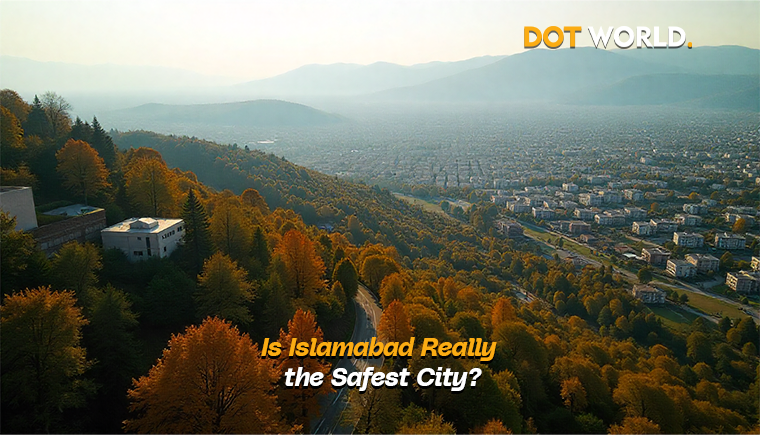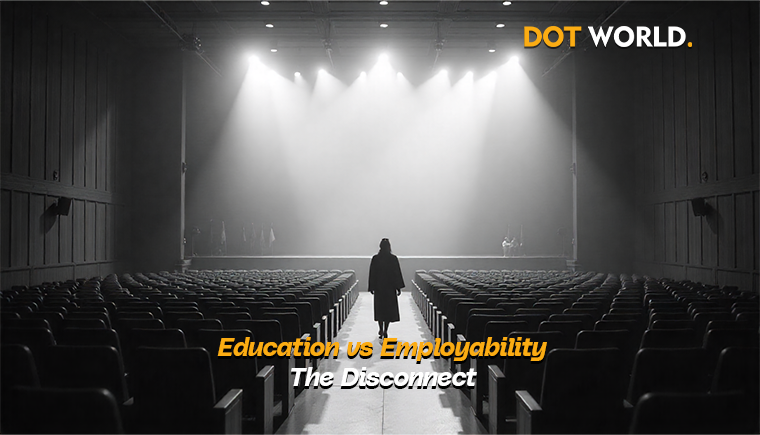When one thinks of Pakistan’s cities, images of bustling marketplaces, traffic chaos, and vibrant culture often come to mind. Amidst this dynamic urban landscape, Islamabad stands out—not just for its scenic beauty or well-planned layout, but for a reputation it has long carried: being the safest city in Pakistan.
But is this reputation justified, or is it simply a well-maintained illusion? As crime rates rise across the country, citizens are beginning to ask the question: Is Islamabad really the safest city, or is the perception far from the truth?
In this blog, we will explore urban safety, compare crime rates, evaluate the law and order situation, and examine what makes—or breaks—Islamabad’s claim to safety among Pakistan cities.
📍 A City Designed for Calm
Unlike many other cities in Pakistan that grew organically without much planning, Islamabad was designed in the 1960s as a master-planned capital. Wide roads, separate sectors, green belts, and security zones contribute to an environment that feels structured and secure.
The physical layout of the city certainly contributes to the perception of safety. Areas like F-6, F-7, and the diplomatic enclave are well-guarded, and the presence of government offices and foreign embassies ensures a strong security presence.
But does better infrastructure mean fewer crimes?
📊 Crime Rate: The Numbers Don’t Lie
Let’s break it down. According to data from the Pakistan Bureau of Statistics and local police reports:
- Islamabad has one of the lowest crime rates among major Pakistan cities.
- In comparison to Karachi, Lahore, and Peshawar, the number of reported crimes—especially violent crimes—is significantly lower.
- The city has fewer cases of murder, robbery, kidnapping, and street crime.
However, that doesn’t mean Islamabad is crime-free.
Recent years have seen a rise in petty crimes, such as:
- Mobile snatching
- Car theft
- House robberies
- Cybercrime and online scams
The crime rate in the city is still relatively low, but it’s on the rise, raising concerns about whether this trend will worsen over time.
🕵️♂️ Types of Crime in Islamabad
1. White-Collar Crime
As a hub of political and bureaucratic activity, Islamabad sees a fair share of white-collar crime, including:
- Corruption
- Real estate scams
- Fraudulent business dealings
2. Cybercrime
With high internet penetration, cybercrime is becoming more frequent. From phishing emails to blackmail via social media, digital spaces in Islamabad are not as safe as they once were.
3. Street Crime
While not as common as in Karachi, street crime incidents are beginning to surface in outer sectors and less-guarded neighborhoods.
4. Gender-Based Violence
Women in Islamabad, especially students and working professionals, have spoken out about:
- Harassment in public places
- Unsafe commutes
- Stalking
Despite its modern outlook, Islamabad is still battling urban safety concerns for vulnerable populations.
🚨 Law and Order: Who Keeps Islamabad Safe?
Islamabad benefits from multiple law enforcement bodies, including:
- Islamabad Capital Territory (ICT) Police
- Rangers
- Special branch & Intelligence agencies
- Community policing initiatives
The presence of these forces, combined with a relatively high police-to-citizen ratio, has helped maintain law and order in the city.
The recent introduction of Safe City Projects, including CCTV surveillance, rapid response units, and centralized monitoring systems, has also contributed to faster crime response times.
But critics argue that:
- These systems are concentrated in elite sectors
- Marginalized neighborhoods lack similar protection
- Response time is still slow in many areas
🏙️ Islamabad vs Other Pakistani Cities
Let’s compare Islamabad to other Pakistan cities on the issue of safety:
| City | Crime Rate | Law Enforcement | Surveillance | Public Perception |
| Islamabad | Low | Strong presence | High in some zones | Safe but changing |
| Karachi | High | Overburdened | Limited | Unsafe, especially at night |
| Lahore | Medium | Improving | Expanding | Moderate safety |
| Peshawar | Medium-High | Inconsistent | Low | Unstable areas |
| Quetta | Medium | Patchy presence | Minimal | Variable by district |
Clearly, Islamabad still ranks at the top when it comes to urban safety, but the gap is narrowing as crime increases.
🧑🤝🧑 Perception vs Reality
For many citizens, Islamabad feels safe. You’ll often see:
- Families walking in parks late at night
- Joggers along Margalla Road at dawn
- Cafés filled with students and professionals
But the perception of safety is heavily influenced by privilege. In wealthier sectors like F-6 to F-11, safety is often taken for granted. However, in areas like Taramri, Bhara Kahu, or G-12, residents speak of:
- Break-ins
- Drug abuse
- Lack of police presence
Urban safety in Islamabad is often a sector-based privilege rather than a city-wide reality.
🗣️ What Residents Say
To understand better, we spoke to a few residents of Islamabad:
Sara, a university student:
“I love living here. I feel much safer than I did in Lahore. But I still avoid going out after 9 PM unless I’m in a group.”
Hassan, an IT professional:
“Islamabad’s organized layout makes a big difference. But there are still crimes; they just don’t always make it to the media.”
Khalida, a domestic worker:
“No one cares about our sectors. The police are slow to respond, and we deal with thefts regularly.”
These accounts show the dual reality of Islamabad’s safety narrative.
🛡️ What Can Be Done to Improve Safety?
1. Expand Safe City Infrastructure
CCTV coverage and tech-enabled policing must extend to all sectors, not just elite zones.
2. Increase Police Accountability
Public confidence in police is still shaky. Community policing and independent oversight can help build trust.
3. Urban Planning for All
Development must include lower-income areas, ensuring balanced infrastructure and security.
4. Gender-Sensitive Measures
Create more safe zones for women, improve lighting in public spaces, and ensure legal protection for harassment victims.
5. Transparency in Reporting
Encourage transparent crime reporting so the public knows the reality and authorities feel pressure to act.
🧭 So, Is Islamabad Truly the Safest?
The answer is complex. Islamabad is certainly safer than most Pakistani cities, but safety is not equally experienced across its population. If you live in a well-developed sector, have a car, and move in educated circles, urban safety may seem like a given.
But for low-income communities, women, students, and daily-wage workers, law and order is far less dependable.
Islamabad must move beyond just maintaining an image and work towards genuine, city-wide safety for all its residents.




